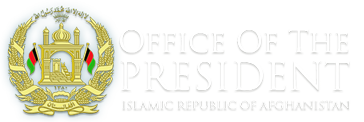
New Delhi: - Deputy Chief of Mission M. Ashraf Haidari was invited to address one of the sessions of an International Conference on India and Its Neighbors: Policy Priorities for the New Government, hosted by the Jawaharlal Nehru University Center for South Asian Studies on March 24-25, 2015. The session, in which Mr. Haidari presented a paper on “How India and China Can Cooperate to Secure the Future of Afghanistan” focused on “India and Afghanistan.” Other scholars, including Dr. Gulshan Sachdeva, discussed other aspects of Indo-Afghan relations, highlighting areas where the two countries have shared concerns, which they should work together to address, in partnership with other countries in the region.
Mr. Haidari first discussed the historical background of how the countries of the region used to treat Afghanistan. “Unfortunately, zero-sum approaches dominated the region’s treatment of Afghanistan throughout our recent history, as different countries in the region created and supported different factions against one another in order to advance their myopic foreign policy agendas,” noted Mr. Haidari. He argued that such approaches are still prevalent, noting the support the Taliban’s terror campaign still receives from outside of Afghanistan against the country’s innocent civilian population. “Despite our efforts to end war and violence through a results-oriented peace process, the Taliban daily kill and maim our people across Afghanistan, indeed, in violation of all international laws and principles of Islam,” he added.
However, Mr. Haidari noted that the interests of the key countries of the region, most notably those of India and China, had been fast converging, which he hoped would encourage the two countries to cooperate in Afghanistan and help it stabilize, using their combined, relevant influence and leverage in the region to do so. “Both India and China need to continue industrializing and economically developing, which requires a stable regional environment. This is impossible to achieve unless Afghanistan is secured at the very center of the ‘Heart of Asia’ countries,” said Mr. Haidari. He added that “stabilization of Afghanistan, therefore, would enable India and China to access the natural resources, including energy and minerals, of the region, some of which are available in Afghanistan, for fueling their continued economic development.”
More specifically, within their strategic and cooperative partnership, Mr. Haidari encouraged India and China to consider cooperating in Afghanistan, which shares similar security, economic, social, and cultural objectives with the two countries. “From counter-terrorism and counter-narcotics cooperation to investing in Afghanistan’s education, health, energy, agriculture, and transportation infrastructure sectors, India and China can cooperate to secure and develop Afghanistan,” Mr. Haidari said.
“The future of the world, as China’s Silk Road Economic Belt envisions, increasingly rests on ‘win-win’ paradigms that promote unfettered, safe trade of goods, easy movement of people, as well as free exchange of knowledge and ideas for ensuring sustainable security and development across Asia,” Mr. Haidari noted. “Afghanistan has already taken concrete steps towards this promising journey of future, thanks to international aid so far. India and China can help Afghanistan make the rest of our journey, in search of permanent peace and prosperity,” he concluded.






